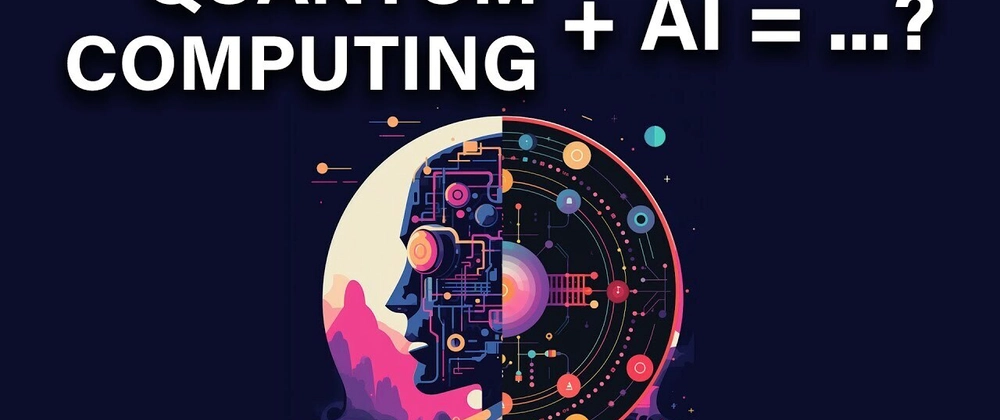Introduction
Artificial Intelligence (AI) has transformed industries by enabling automation, data-driven decision-making, and advanced problem-solving. However, as AI models become more complex, they require exponentially increasing computing power. This is where Quantum Computing enters the equation, promising to revolutionize AI by exponentially speeding up computations that classical computers struggle with.
Integrating Quantum Computing with AI (Quantum AI) could lead to groundbreaking advancements in machine learning, optimization, cryptography, and much more. But how exactly will this integration work, and what challenges must be overcome? Let’s explore the next frontier of AI powered by quantum technology.
What is Quantum AI?
Quantum AI refers to the application of quantum computing to enhance AI models and algorithms. Unlike classical computers, which process data using bits (0s and 1s), quantum computers use qubits, which can exist in multiple states simultaneously due to superposition. This allows quantum computers to perform multiple calculations at once, making them vastly more powerful for certain tasks.
When combined with AI, quantum computing could lead to supercharged machine learning models, faster optimization solutions, and breakthroughs in areas like drug discovery, financial modeling, and cryptography.
How Quantum Computing Enhances AI
1. Faster Machine Learning Training
AI models, especially deep learning networks, require extensive computational resources for training. Quantum computing could drastically reduce training times by processing massive datasets exponentially faster than classical computers.
For example, Google’s Quantum Supremacy experiment demonstrated that quantum computers can solve complex problems in minutes that would take classical supercomputers thousands of years. Applying this capability to AI training could accelerate the development of advanced neural networks.
2. Improved Optimization Algorithms
AI relies heavily on optimization, whether it's training models, fine-tuning hyperparameters, or improving logistics and supply chain management. Quantum computing's quantum annealing and variational algorithms can find optimal solutions much faster than classical optimization techniques.
3. Advanced Pattern Recognition and Data Analysis
Quantum computers can process massive datasets in parallel, allowing for more efficient pattern recognition and data analysis. This could revolutionize fields like medical imaging, fraud detection, and natural language processing (NLP) by enabling AI to detect patterns that would be impossible for classical systems.
4. Securing AI with Quantum Cryptography
As AI applications grow, cybersecurity risks increase. Quantum cryptography offers unbreakable encryption methods that can secure AI models and sensitive data against potential quantum cyber threats. Technologies like Quantum Key Distribution (QKD) ensure data integrity and privacy in AI-driven systems.
Real-World Applications of Quantum AI
1. Drug Discovery and Healthcare
Pharmaceutical companies like IBM, Google, and Pfizer are exploring Quantum AI to simulate molecular structures, leading to faster drug discovery and more precise medical treatments. AI-powered quantum simulations could significantly reduce the time and cost of developing new medicines.
2. Financial Modeling and Risk Analysis
Quantum AI can process financial market data at unprecedented speeds, allowing banks, hedge funds, and investment firms to create more accurate risk models and optimize trading strategies. Companies like Goldman Sachs and JPMorgan Chase are already investing in Quantum AI for this purpose.
3. AI-Powered Climate Modeling
Climate prediction models require immense computational power. Quantum AI can simulate weather patterns, environmental changes, and natural disasters with greater accuracy, helping scientists and policymakers develop better climate solutions.
4. Quantum AI in Autonomous Systems
Self-driving cars, drones, and robotics rely on AI for decision-making. Quantum AI could enhance real-time processing, obstacle detection, and route optimization, making autonomous systems more efficient and reliable.
Challenges in Integrating Quantum Computing with AI
Despite its immense potential, Quantum AI is still in its early stages and faces several challenges:
- Hardware Limitations: Quantum computers are extremely delicate and require ultra-cold temperatures to function, making them difficult to scale.
- Error Correction: Qubits are highly sensitive to environmental disturbances, leading to errors in calculations. Quantum error correction is still a developing field.
- High Costs: Quantum computing technology is expensive, and widespread adoption is still years away.
- Lack of Skilled Talent: Quantum AI requires expertise in quantum mechanics, AI, and computer science, making it a highly specialized field.
The Future of Quantum AI
As quantum technology advances, AI researchers and developers will need to rethink algorithms, data structures, and computational approaches to fully leverage quantum capabilities.
Companies like Google, IBM, Microsoft, and startups like Rigetti Computing are racing to develop scalable quantum computers and integrate them with AI. Over the next decade, we could see Quantum AI revolutionize industries and push the limits of what’s possible in artificial intelligence.
Conclusion
Quantum AI represents the next major leap in AI evolution. By integrating quantum computing with AI, we can solve problems faster, process massive datasets more efficiently, and create next-generation AI models that were once considered impossible.
🚀 As we step into this new frontier, one thing is clear—Quantum AI is set to redefine the future of technology, science, and innovation.





Top comments (0)